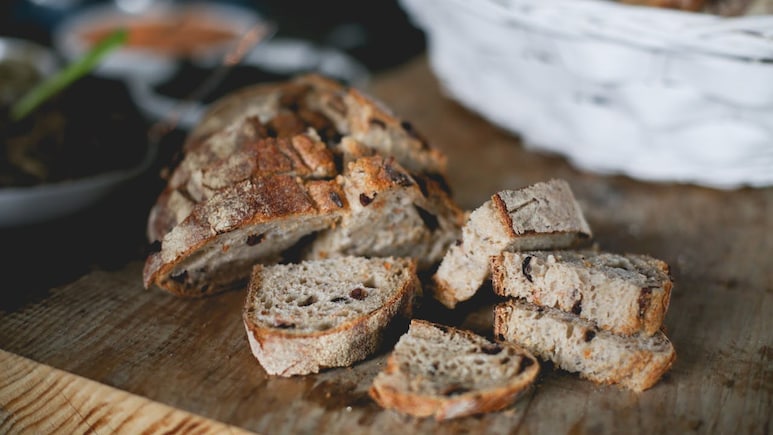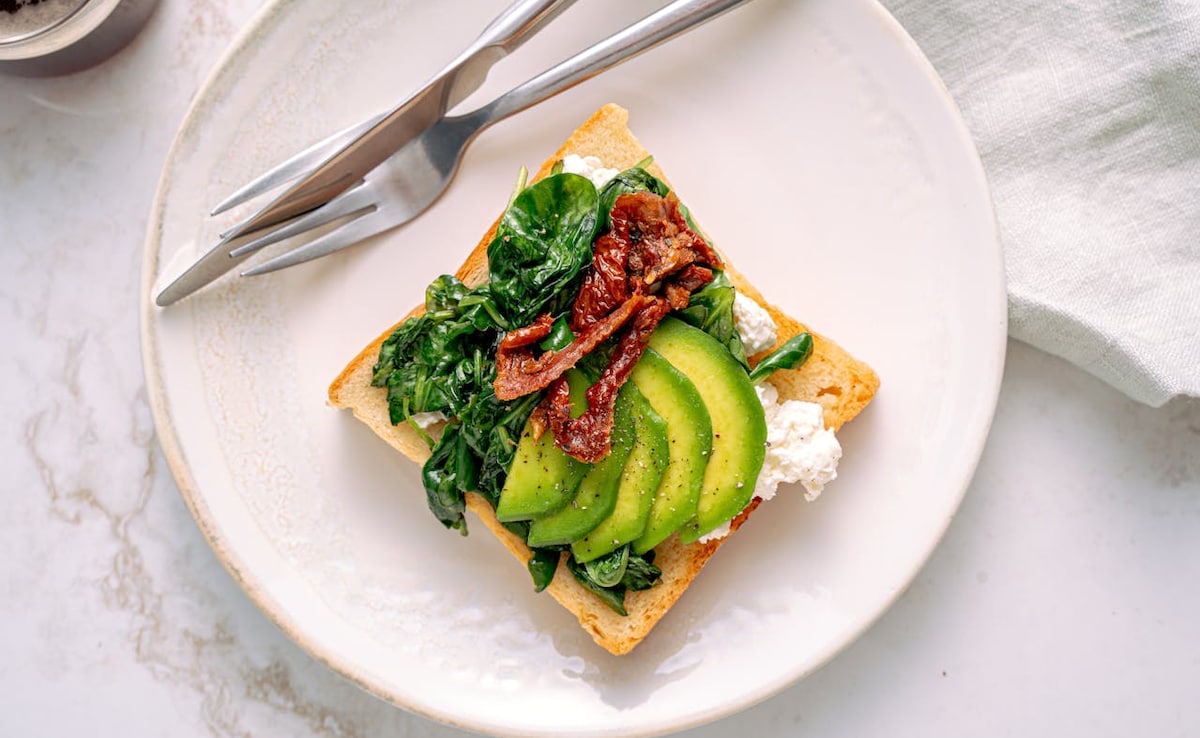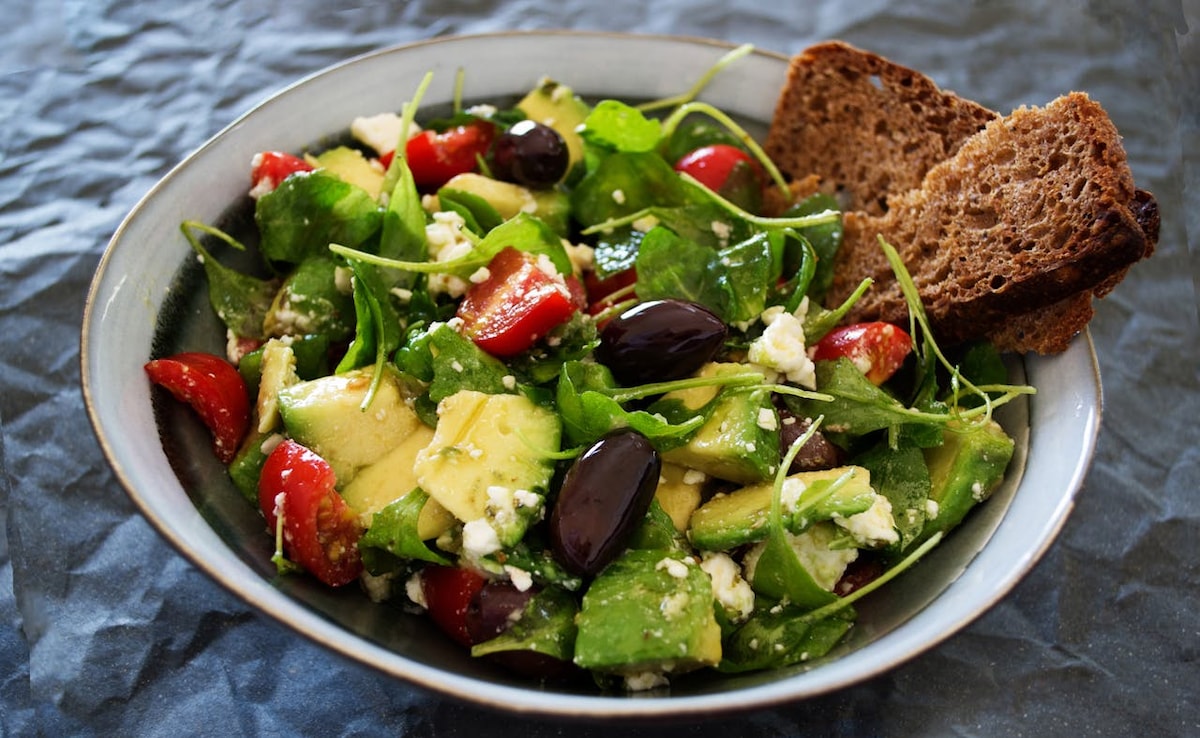
When most people, even Indians, imagine a breakfast table and dishes on it, bread tends to take the spotlight, or at least becomes the thread that weaves everything together. From the toast that you put butter or honey on to the sourdough slice you dip into poached eggs, the first meal of the day often centres around bread. And while most Indians don't go for breads for lunch and dinner, those who rely on sandwiches, pizzas, burgers, or even healthy avocado toasts do end up consuming more bread throughout the day. The problem is, a lot of this consumption comes with varied amounts of guilt because bread gets blamed for weight gain more than most foods. Social media influencers have only added to this, and now you can just as easily come across rumours of bread consumption causing everything from weight gain to cancer!
But nutrition science points to something more useful than demonizing a staple: type, portion and pairing matter far more than the mere presence of bread on your plate. Replacing heavily refined, low-fibre loaves with better-quality breads, and eating them in the right combinations and amounts, can fit into a not only a balanced diet but also a successful weight-loss or weight-maintenance plan. This is because, as a study published in The Lancet (2019) also points out, carbohydrates are an essential part of a balanced diet. All you need to worry about is the quality.
What Science Actually Says About Bread Consumption
Large reviews and meta-analyses show a consistent message: carbohydrate quality, not carbohydrates per se, predicts many health outcomes including weight trends. Higher intake of whole grains and other high-fibre, minimally processed carbs is linked with smaller long-term weight gain and lower cardiometabolic risk. That led major reviews to recommend focusing on whole grains, legumes, fruits and vegetables rather than blanket low-carb prescriptions.
However, randomized trials have mixed results. Some studies, like the one published in the American Journal of Clinical Nutrition (2014) find whole-grain-rich diets produce modest reductions in body fat or improvements in metabolic markers, while other trials show little difference in absolute weight loss when calorie intake is controlled. The practical takeaway: whole grain quality helps but weight loss still requires overall calorie balance and sustainable eating patterns.
So, clearly, as long as you ensure that the bread you are eating is made with quality whole grains and minimal addition of preservatives, chemical additives and processed sugars, you should be fine. Of course, portion control and making bread a part of a meal and not the whole of it matter equally.

White bread is often villainized, but does it actually impact your health?
Photo Credit: Pexels
Is White Bread The Problem?
You would just as often find people saying that all breads are not the problem, only white bread consumption is. Now this does have some truth to it. Observational studies suggest higher consumption of refined white bread is associated with greater odds of becoming overweight or obese in some populations (do remember that all studies come with caveats, and very few are actually done on Indian populations, still).
That association likely reflects a pattern: white bread often comes paired with other refined foods and lower fibre intake, and can have a higher glycemic load that may increase hunger for some people. Still, evidence is not unanimous; some analyses, like the one in BMC Public Health (2014), find no direct link after adjusting for total diet quality.
In practice, though, choosing whole-grain or fibre-rich alternatives is a low-risk, high-reward step.
Which Breads Are Better For Weight Goals?
In essence, scientific evidence till date proves that bread is not the enemy, as a category, but quality and quantity matters heavily. If you are indeed on a weight loss journey and want to know which bread varieties to rely on, here's a list:
Whole-grain breads (100% whole wheat, multigrain where each grain is whole):
These breads have higher fibre, more micronutrients and greater satiety per slice. Cohort studies and reviews associate higher whole-grain intake with less weight gain over years.
Sourdough and fermented breads:
Some studies show more favourable blood-sugar responses compared with conventional white bread, which can blunt rapid glucose spikes and may help appetite control for some people. Reformulated high-fibre breads also improve markers like fasting glucose.
Rye and dense, high-fibre loaves:
Denser breads with intact kernels often have lower glycaemic responses and greater fullness per calorie than airy white loaves.

Bread should be a part of your meal and not the whole of it
Photo Credit: Pexels
How To Eat Bread: Balanced Diet Tips
If all the evidence above hasn't convinced you that bread is not the enemy, then just ask yourself, "are people in countries or regions where bread-eating is predominant all unhealthy and fat?". From Germans and the Turkish to the French and the Italians, bread consumption is traditional and rampant throughout the Eurasian nations. Sure, health issues are global and no country is fully, 100% healthy, but taking a cue from how these nations approach bread consumption can help Indians just as well. Here are some tips to start with:
Watch portions. Two slices of whole-grain bread can be 180-250 kcal depending on thickness. Pair them smartly instead of piling on. Remember, bread is the carb part of the meal, but your plate needs to have other macro and micronutrients too.
Pair with protein and healthy fat. Combining bread with an egg, paneer/tofu, dal, peanut butter, avocado and fresh fruits or veggies slows digestion and increases satiety so you eat fewer calories later. Trials of higher-protein, lower-GI diets show less hunger even when weight loss is similar.
- Choose fibre and read labels. Look for 3-5 g fibre per slice (or more), whole-grain listed as first ingredient, and minimal added sugar. Reformulated or fermented breads with added fibre show better metabolic responses. Also, make sure there's no potassium bromate in your bread by cross-checking the contents properly.
- Beware of "multigrain" marketing. Multigrain often means several refined flours. Insist on "100% whole grain/whole wheat" or check the ingredients.
- Use bread to displace, not add. Make bread a swap for other carbs in your meals, e.g., replace two chapatis or roti or a fried snack with a sensible sandwich. Doing this rather than adding bread on top of existing intake will help.
When Bread Might Hinder Weight Loss And Overall Health
If bread is ultra-processed, very low in fibre, eaten in large amounts, or frequently paired with sugary spreads or fried sides, it can increase total energy intake and make weight loss harder. Additionally, people prone to large post-meal glucose swings may feel hungrier after low-fibre breads. But this is about patterns, not bread itself.
The bottomline is that bread itself is not a universal enemy. Choose quality whole-grain or sourdough loaves, watch portions, pair slices with protein and healthy fats, and make bread a replacement rather than an addition. These simple shifts, supported by cohort studies, systematic reviews and several trials, let you enjoy bread and still meet weight-loss and health goals.
Disclaimer: This content including advice provides generic information only. It is in no way a substitute for a qualified medical opinion. Always consult a specialist or your own doctor for more information. NDTV does not claim responsibility for this information.
References:
Reynolds A et al., Carbohydrate quality and human health: a series of systematic reviews and meta-analyses. Lancet 2019.
de la Fuente-Arrillaga C et al., Glycemic load, glycemic index, bread and incidence... (PubMed). 2014.
Sanders LM et al., Effects of Whole and Refined Grains in a Weight-Loss Diet. (Systematic review / meta-analysis). 2021.
Jackson KH et al., Effects of whole and refined grains in a weight-loss diet on... (RCT meta-analysis). 2014.
Schadow AM et al., Regular consumption of reformulated breads high in dietary fibre... 2022.
Li Z et al., Effects of whole grain intake on glycemic control. 2022.
Track Latest News Live on NDTV.com and get news updates from India and around the world

